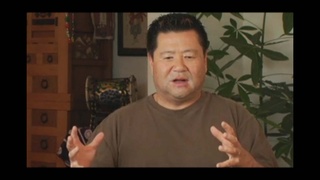Interviews
Avoiding the pigeonhole of stereotypes during school years
I think that there was some stereotyping going on. I think that some of the teachers and some of the administrators in the schools saw many of the Sansei kids as good, quiet, smart Japanese kids who could do well in school, but might not, but should not be encouraged in other ways. For example, perhaps some of these administrators and teachers and counselors felt that Japanese Americans should pursue the sciences and math, and not perhaps the creative arts, or we should aspire to stay local, to go to USC and go to UCLA like everybody else did, but never dream of going to Stanford or Yale or Harvard.
So while I think back on it, and it was certainly a very safe environment, it was an environment where I felt that I could strive for excellence and be whatever I wanted to be. In some ways as I think about it, maybe it was kind of what you might call like a glass ceiling, like we talk about it today, where yes, you should be successful, but you're still Japanese American, so don't strive for too much.
Date: March 23 & 24, 2000
Location: Washington, US
Interviewer: Margaret Chon, Alice Ito
Contributed by: Denshō: The Japanese American Legacy Project.
Explore More Videos



Support from the Japanese American community
(b.1971) Professional figure skater and Olympic gold medalist.

Reasons for conformity and competitiveness in Gardena, California
(b. 1946) Lawyer







Advantages of being Nikkei (Spanish)
(b. 1950) Nisei Chilean, Businessman


Childhood shame for being Nikkei in Enumclaw, Washington
Judge, only Japanese American to serve on CWRIC.

On the Impact of the Camp Experience
(b. 1942) The first Asian American woman judge

Thoughts on the term, "Nikkei"
(b. 1949) Musician and arts educator and adminstrator.
